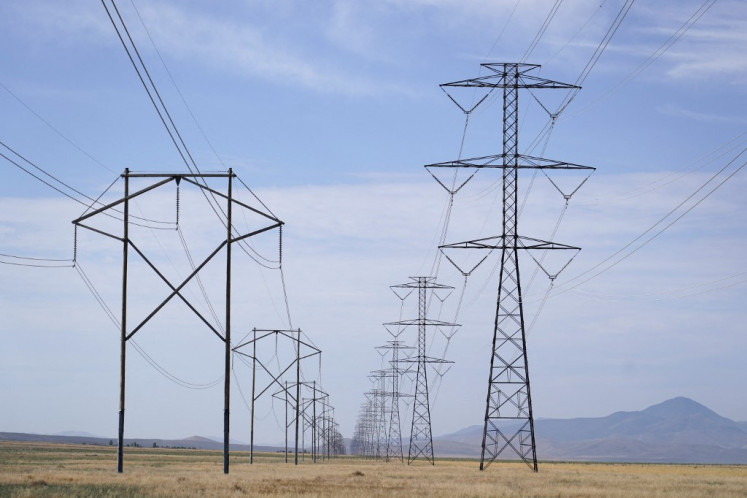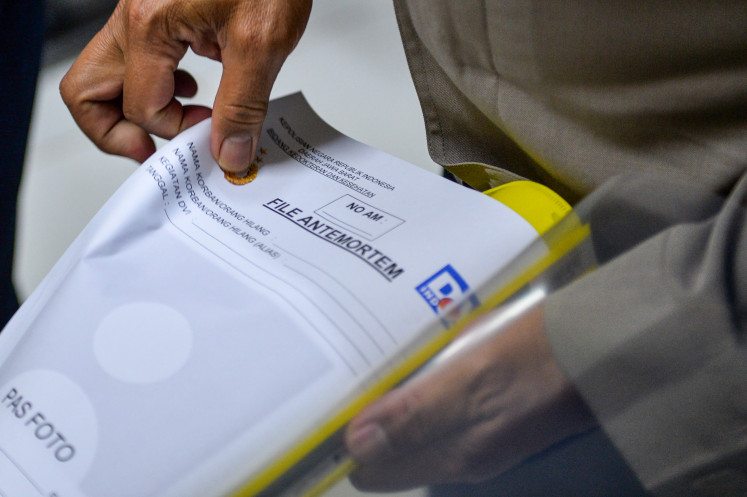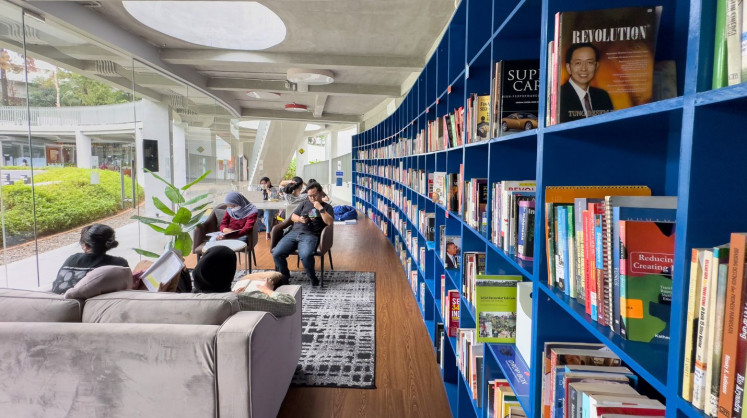Meme culture: A tool of reflection and empowerment
When we wake up in the morning, the first thing we might do is open our gadgets, see a meme, laugh at it and eventually share it
Change text size
Gift Premium Articles
to Anyone

W
hen we wake up in the morning, the first thing we might do is open our gadgets, see a meme, laugh at it and eventually share it. Looking and sharing a meme takes less than a minute; it is as simple as that.
However, meme culture is not always as simple as it looks. It can turn out to be more complex and impactful than we thought. The recent 'papa minta saham' (papa asks for company shares) meme, which has gone viral and prompted President Joko 'Jokowi' Widodo to mention it in his speech, corroborates this.
The 'papa minta saham' meme is an expression of Indonesian digital society in response to the transcript of a tape recording of House of Representatives Speaker Setya Novanto allegedly lobbying PT Freeport Indonesia for shares.
The circulation of this meme, at least, has contributed to Indonesians' public awareness. Some people may not understand the details of the allegations against the House speaker; yet the meme's rapid appearance in social media and other platforms has sparked a curiosity that triggers them to look deeper into the case. In the end, greater awareness is built. As a result, it puts more pressure on the House's ethics council to sort the matter out.
____________________________
Since memes are mostly simple and humorous, they do not look harmful.
Meme culture is a global phenomenon. Besides being purely 'for fun', memes have been used by activists to express criticism of politicians and governments, including in authoritarian countries like China and Vietnam.
The term meme was coined by a biologist, Richard Dawkins, in 1976 to describe the spread of the smallest unit of culture, such as ideas, from one to another by copying or imitating. In 2014, MIT scholar Limor Shifman specified an internet meme as 'a group of digital items sharing common characteristics of content, form, and/or stance; that were created with awareness of each other; and were circulated, imitated, and/or transformed via the internet by many users'.
Meme culture should be viewed as more than just a mundane issue. The culture can be beneficial both for citizens and governments.
For citizens, memes have proved beneficial as they can empower civil engagement.
Although the tangible impact of memes remains vague as in the Indonesian case, scholars from RMIT University Vietnam found that memes served as a tool to empower a new form of civil engagement against the government.
In 2013, through memes, activists mobilized citizens to criticize the government over public health scandals and censorship of locally produced movie China Town, which then ignited national awareness.
This is a significant achievement, since the mainstream media in Vietnam are controlled by the Communist Party.
How can memes become that powerful? Zuckerman's 'Cute Cat theory' may go some way to explaining the phenomenon. Since memes are mostly simple and humorous, they do not look harmful (just like a cute cat). This gives governments a headache in deciding how to censor the hazard without censoring the cuteness. Censoring the cuteness may escalate public protest.
In addition, that cuteness has encouraged more users, even non-activist ones, to engage by sharing the content to bigger circles. Consequently, the voices are amplified widely and instantaneously. Apparently, the 'papa minta saham' meme is one such case.
As for governments, meme culture can help them extract public demands and perception, since memes can reflect social mindsets; the more memes are created and circulate, the more issues covered in the memes represent what society thinks.
Indeed, public perception and demands are crucial for democratic governments. By comparison, the private sector is keen to spend huge amounts of money just to identify the desires, preferences and perceptions of costumers or potential costumers regarding their products. Such information is a treasure, since it directly affects business. Thus, in a democracy, where the government is supposedly the representative of the people, public perceptions and demands should be taken into account.
Therefore, a sincere and mature government should thank satirical memes, since they offer another option to the government to understand its citizens without having to wait for chaotic or bloody demonstrations.
Hence, the government should let citizens explore the meme culture as part of their freedom to express their thoughts on issues surrounding them.
Although it is extremely difficult for governments to win the hearts and minds of the public, by understanding their people, they can at least produce policies considered to meet the needs of the people rather than the elite.
_____________________________
The writer, who is pursuing a PhD degree in media and communication, is member of Digital Media Research Centre at Queensland University of Technology, Australia.









